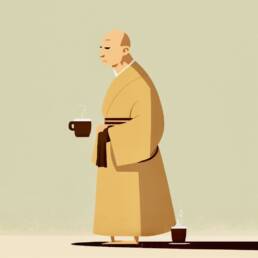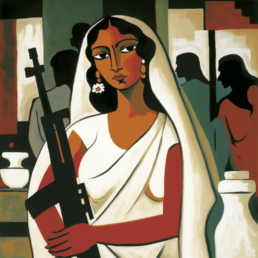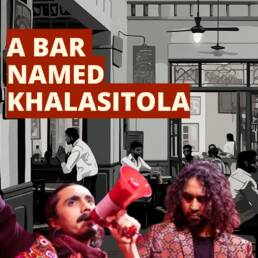Did you know the origin story of the thriving Indian pop music scene of the 90s? Here we tried to look back at some familiar names and not so familiar backstories.
The year was 1980. Actor Feroz Khan was going to direct his first film titled Qurbani. Khan, quite the maverick, wanted a different flavor of music for his film and his search took him to London.
In the English capital, Khan met up with fellow Bangalorean Biddu Appaiah near the Claridge’s Hotel in Mayfair. The conversation that followed was going to shape the Indian Pop scene for the next couple of decades.
Now, who was Biddu Appaiah? And why did Feroz Khan go all this way to hire him when there was clearly no dearth of musical talent in the Hindi film industry? Well in this case we can safely say that Khan was a visionary.
Biddu fell in love with music and Elvis at a very early age. His trajectory took him from local competitions in Bangalore to wedding ceremonies in Hyderabad to forming a group with a couple of boys called ‘The Trojans’.
He and his singing trojans then made their way to Calcutta looking for a job, after an impromptu session at the Trinca’s where curious onlookers requested the boys to play some music, they were kept on the job permanently at the club.
After playing in the City of Joy for some time the boys were invited to play in the City of Dreams, Bombay. The band however, broke up after a few months and Biddu went ahead being the Lone Trojan. His popularity however only grew.
It’s quite a story how Biddu made his way to England, but when he met Khan in London, he was a household name in London’s music scene. Few had heard of him back home however and he sensed an opportunity.
Khan also had a singer in mind, a young girl of Pakistani origin. As the 15-year-old Nazia Hassan sang in front of Biddu for the first time, Biddu felt that although the voice wasn’t wonderous it had warmth and was somehow different. She was selected.
Feroz already had the lyrics; Biddu created the melody, and they had the recording done in a studio near Paddington Green. With Nazia’s young voice and Biddu’s hip-swaying tune, the song ‘Aap Jaisa Koi’ was crafted, and Khan was ecstatic.
Days later Biddu received a telephone call from Khan saying that the song had been a huge hit in India. Khan’s gamble had paid off, and the film became a hit. For Biddu and Nazia this was only the start.
The duo collaborated again for a non-film album for HMV, India’s biggest music company back then. Biddu and Nazia’s brother Zoheb made most of the tunes, and the songs were sung by Nazia and a few other artists.
There was however some confusion over the title of the Album, after much deliberation, Biddu’s suggestion was taken and the album was titled Disco Deewane. Biddu wrote the title song and the album went out in 1981.
On its day of release Disco Deewane sold almost 100,000 copies, the album was a massive hit. Its fresh and melodic tune captivated the public. It catapulted Biddu and especially Nazia to unprecedented heights of pop stardom.
Biddu worked with Nazia and Zoheb for another couple of albums which met with moderate success. During this time, he also collaborated with Sri-Lankan Musician Winston Sela for a single ‘Don’t tell me this is love’.
That song was apparently included in an album by a Japanese singer and became number one in Japan for some time. Around 1994 Biddu got another idea for a song while on a morning walk. It was to be titled ‘Made in India’.
He created a demo of the song and sent it to Shashi Gopal in India. Initially, the thought was to have Nazia on the vocals, but she eventually refused to do it. Shashi and Biddu then turned to a young upcoming Indian vocalist Alisha Chinai.
Biddu composed all the songs for the album. Alisha was on the lead vocal, for backup Biddu used another young artist, Sophie Chaudhury. The video for the song was made to perfection fitting all the elements that represented the country.
In April 1995 the album was released and it took the country by storm. ‘Made in India’ became a brand selling over three million copies and staying on top of the charts for three long weeks. It was as if the country was craving for something like this as it headed towards a new era.
It gave Biddu the opportunity to work with artists like Sonu Nigam and Shaan which ushered in another era of Indian Music. Biddu’s music is less heard these days, but there was a time when his magical tunes and words captured the imagination of entire generations.
Sources:
- Made in India: Adventures of a Lifetime by Biddu,
- https://www.discogs.com/release/13880672-Nazia-Hassan-Biddu-Disco-Deewane,
- http://movies.rediff.com/slide-show/2010/mar/04/slide-show-1-excerpts-from-biddus-book.htm,
- https://www.cinestaan.com/people/alisha-chinai-14145,
- https://www.dawn.com/news/1169338,
- wikimedia,
- https://bollywoodirect.medium.com/39-years-of-qurbani-20-06-1980-1e819978c97d,
- https://www.google.com/amp/s/m.rediff.com/amp/movies/special/was-feroz-khan-indias-coolest-actor-ever/20210427.htm




